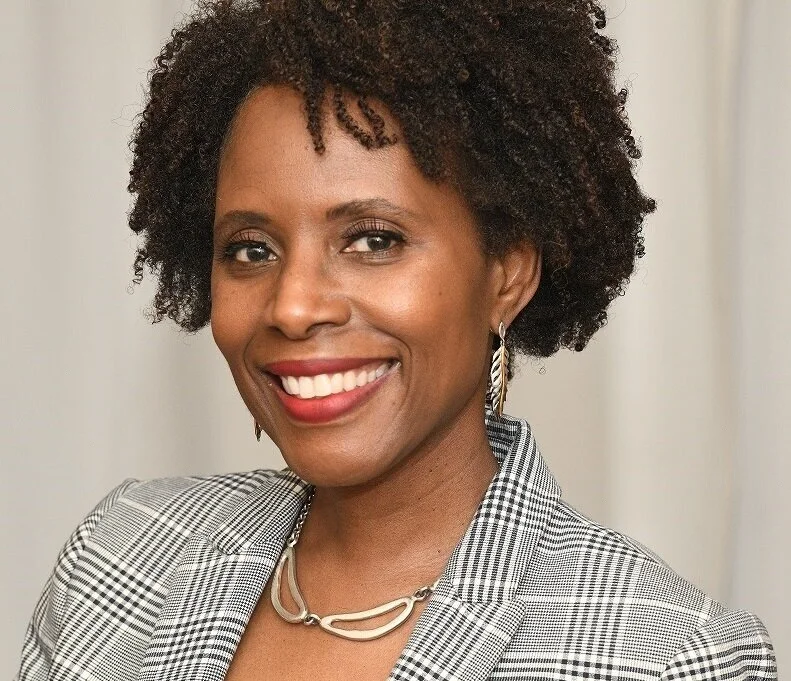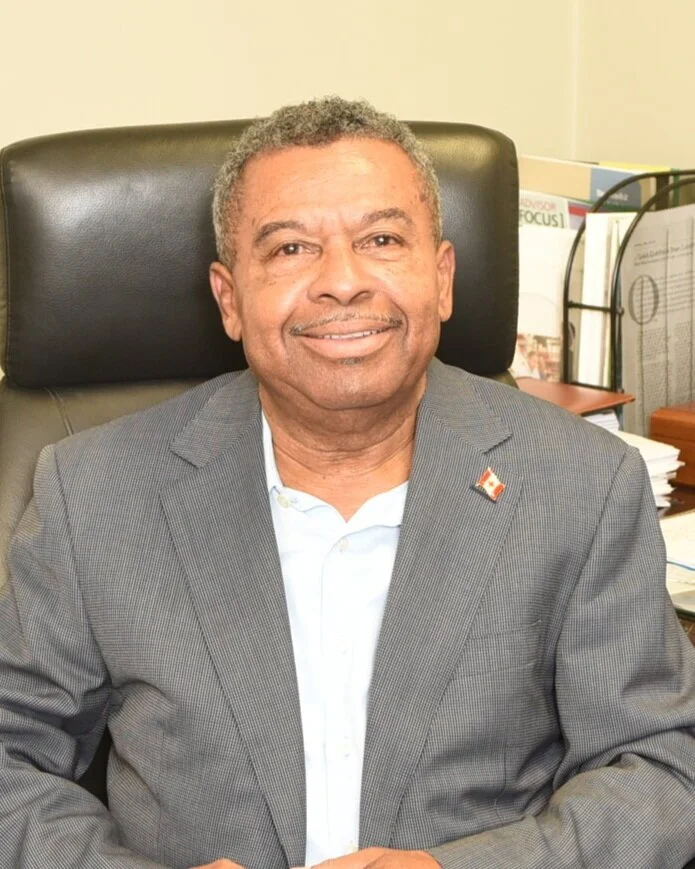Camille Nelson is trailblazer for female Black university deans in the United States
August 10, 2020
A university dean for nearly a decade, Camille Nelson is among the most senior Black women to hold the position in the United States.
On August 1, the Jamaican-born Canadian took up the deanship of the University of Hawaii at Manao William S. Richardson School of Law, replacing Aviam Soifer who held the role for 17 years.
She beat out two other finalists for the job.
“We have landed a terrific person as our Dean as well as an experienced, wise and inspiring administrator,” Soifer said in welcoming her to the university.
Honoured to be nominated, Nelson jumped at the opportunity to tender her application since she’s very familiar with the law school.
She did her first sabbatical there in the first six months of 2007 and was part of the Ulu Lehua Scholars program summer semester teaching team providing instruction to students from underserved communities.
“It has been a school that I have had the pleasure of being in connection with for a while and I am happy this all worked out,” said Nelson who, in 2016, was named one of the most influential people in legal education by ‘National Jurist’ magazine. “Since the first time I came here 14 years ago, I felt immediately connected here, I felt healthy here and I really felt embraced.”
Nelson joins the University of Hawaii Law School after nine years of deanship at the American University Washington College of Law and Suffolk University Law School.
“Those combined years really led me to understand the role of a dean and frankly a non-traditional dean in these times,” she said. “One of the things I have grown to appreciate is that a diversity of leadership voices really brings a more robust dynamic to decision-making. Those nine years have really informed the way I look at opportunities and challenges. I think so much of what a dean does is crisis and situational management and obviously a lot of strategic planning, financial and human resource management. As a Black Jamaican woman, I think we tend to bring different voices to the table, especially when we are bringing our experiences to the table.”
While the number of female Black law school deans in the United States is on the rise, Canada has just one Black filling the role, following the recent appointment of Donna Young at Ryerson University’s new Faculty of Law.
Young is just the second Black law school dean after Juanita Westmoreland-Traore – Quebec’s first Black judge -- held the position at the University of Windsor from 1996 to 1999.
The Ryerson opening was on Nelson’s radar.
“I am 100 per cent behind Donna and we spoke while she was considering it,” she noted. “The timing was not opportune for me and there were opportunities in the United States that I was more inclined to pursue. I am really happy they appointed a Black woman into the role. It’s about time we start to see more Black leadership in Canada and she’s going to do very well.”
Stetson University, Rutgers, the University of Cincinnati, Stanford, Maine, St. Thomas University, California Western and Charlotte all have female minority deans that have been appointed in the last 18 months.
Nelson attributes this ascendancy to the rise in minority women in the legal profession, mentorship and university leaders recognizing the need to make their institutions more diverse.
“We all know each other and it’s still a very small village,” she said. “The job is really, really hard now and the situation is so acute that people are been forced to think differently about who might be a good leader in this moment and what good leadership looks like. I say that as many campuses have been plagued by ‘campus climate’ issues meaning race related or identity bias-related issues. I think those of us who have been dealing with racism and sexism and various other ‘isms’ are suddenly seen as having a skill set that might well be appropriate for the time. It has always been relevant, but I think leaders are finally recognizing that diversity and, more importantly, inclusion and myriad voices can actually help to be part of the way we go forward more positively.”
There are 23 female Black deans at American law schools.
Professor Catherine Smith, the Associate Dean of Institutional Diversity & Inclusiveness at the University of Denver’s Sturm College of Law, said Nelson has been a trailblazer and inspiration for many female Black deans and diverse faculty.
“A brilliant leader, she’s passionate about her vision for legal education that includes levelling the playing field by removing obstacles and barriers to law school and the legal profession,” added Smith who, last February, testified before the Colorado State Judiciary Committee on why hair discrimination is race discrimination by explaining America’s history of using skin colour, nose width and hair texture as a means of control to stigmatize Blacks and other historically marginalized groups.
“She works tirelessly to serve communities of colour and diverse peoples and has been incredibly successful at it. And, fortunately for all of us, she is just getting started. She is the only dean that I have ever heard say she has finally found a job that keels up with her level of energy and passion. I greatly respect Dean Nelson as a teacher, scholar and leader and look forward to what she achieves as Dean of Hawaii Law School.”
Completing her undergraduate degree in Administration with high distinction at the University of Toronto, Nelson graduated magna cum laude with a law degree from the University of Ottawa and a Master of Laws from Columbia University School of Law.
It was while at the University of Ottawa in 1994 that she had the opportunity to become the first Black woman to clerk at the Supreme Court of Canada.
Nelson thanks Sanda Rogers, then the Vice Dean, for encouraging her to apply for the clerkship.
“Law students are ranked after their first year and I was ranked very high,” she recalled. “I hadn’t applied for the clerkship because I thought it was secretarial work. I figured I wasn’t going to apply as I was hoping to use my legal background and law school education.”
Nelson still gets emotional when recounting Rogers phone call urging her to apply and her explanation of a law clerk’s role.
“She let me know that I should apply because of how high I was ranked in the class,” the American Law Institute elected member said. “I had about 48 hours before the deadline to submit my application and I did it. But for Sanda taking the time to ring me and explain to me why I should apply and what it was, I totally would have missed that opportunity.”
After several interviews, Justice Frank Iacobucci, who retired from the Bench in 2004, hired Nelson.
“He changed my life,” she said. “He gave me an opportunity that really set me on a path because it was quite prestigious. To his day, I sing the praises of all levels and kinds of clerkships. Working with a judge that closely and seeing the inner workings of the Bench and having these colleagues who are these brilliant co-clerks and fellow clerks from across the country was life changing. It was an opportunity that really set me on a course for academic possibilities as well and, to this day, Justice Iacobucci is a dear friend and mentor and he calls our kids his grand clerks. He’s an incredible blessing in my life.”
After 32 months as a Litigation Associate at McCarthy Tetrault, Nelson left in August 1998 to become an Associate in Law at Columbia Law School in New York. Two years later, she joined Saint Louis University School of Law as a professor.
In between the nine years at Saint Louis where she was recognized as Professor of the Year in 2004, Nelson was a Distinguished Scholar in Residence in the University of Ottawa Common Law Section for five years during the January term, a Visiting Professor at the University de Paris-Dauphine, an Adjunct Visiting Professor at Seattle University School of Law and a Visiting Professor of Law at the University of Hawaii William S. Richardson School of Law.
At the end of five months as Dean’s Scholar in Residence at Saint Louis School of Law, Nelson left to become a Law Professor at Hofstra University School of Law where she spent nine months before taking up the first of three deanships in August 2010 at Suffolk University Law School where her visionary leadership led to the creation of America’s first law technology academic concentration.
Suffolk Law was ranked among the nation’s best in clinical programs, intellectual property, dispute resolution and legal writing during the legal scholar five-year reign as the Boston university first woman and first person of colour to become dean.
The law school’s annual diversity award bears Nelson’s name in recognition of her leadership in diversity and inclusion.
Growing up in Durham, there were always constant conversations at the dinner table and even in the family car around racism, injustice, oppression and colonization.
Those discussions influenced Nelson’s interest in law, social justice and her scholarship focus on the intersection of critical race theory and cultural studies.
“There was like a constant running commentary largely from my father,” said Nelson who last year was named among the Top 35 Women in Higher Education by ‘Diverse Issues in Higher Education’ magazine. “You might think that kids aren’t listening, but they are listening, observing and processing in their own ways. It surprises me when my kids say something or extrapolate on something that my husband and I have said. They are paying attention and soaking it all in.”
Working south of the border for just over two decades, Nelson – who was inducted into the University of Ottawa Common Law Honour Society in 2004 -- said Canadians need to be more intentional in recruitment and retention.
“Americans are far more aggressive in recruiting than Canadians are,” she pointed out. “By the time I had one interview in Canada, I had already had about six or seven offers in the United States.”
She and her husband – they met in high school -- of 26 years have three children.
Based in The Hague, David Rowntree is the United Nations Mechanism for International Criminal Tribunals Audiovisual Archivist.
Nelson is the oldest of three siblings.
Charmaine Nelson, Canada’s only Black Art History Professor, is leading the development of the Institute for the Study of Canadian Slavery while Charlayne Scarlett is a first-year graduate student in the University of Florida Department of Clinical and Health Psychology.
A firm believer that maintaining good health as a busy professional is important, Nelson plays tennis and embraces meditation. For her 50th birthday a few years ago, she bought a peloton bike to keep fit.






